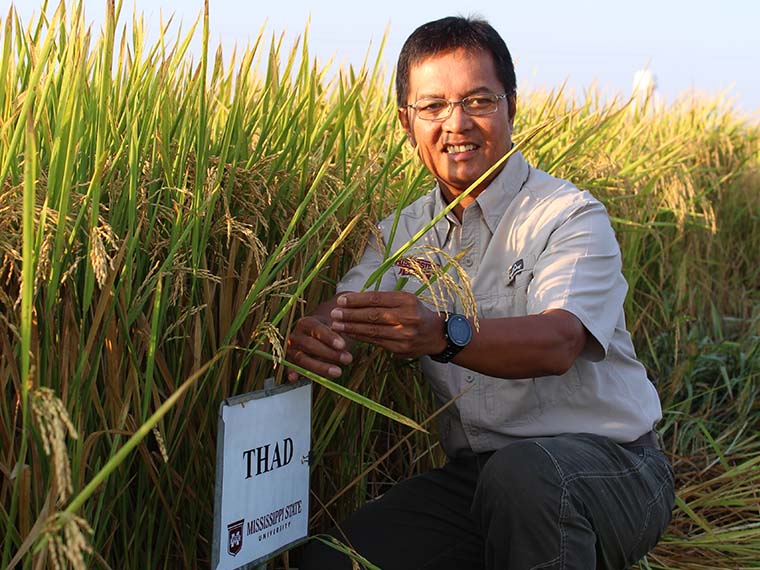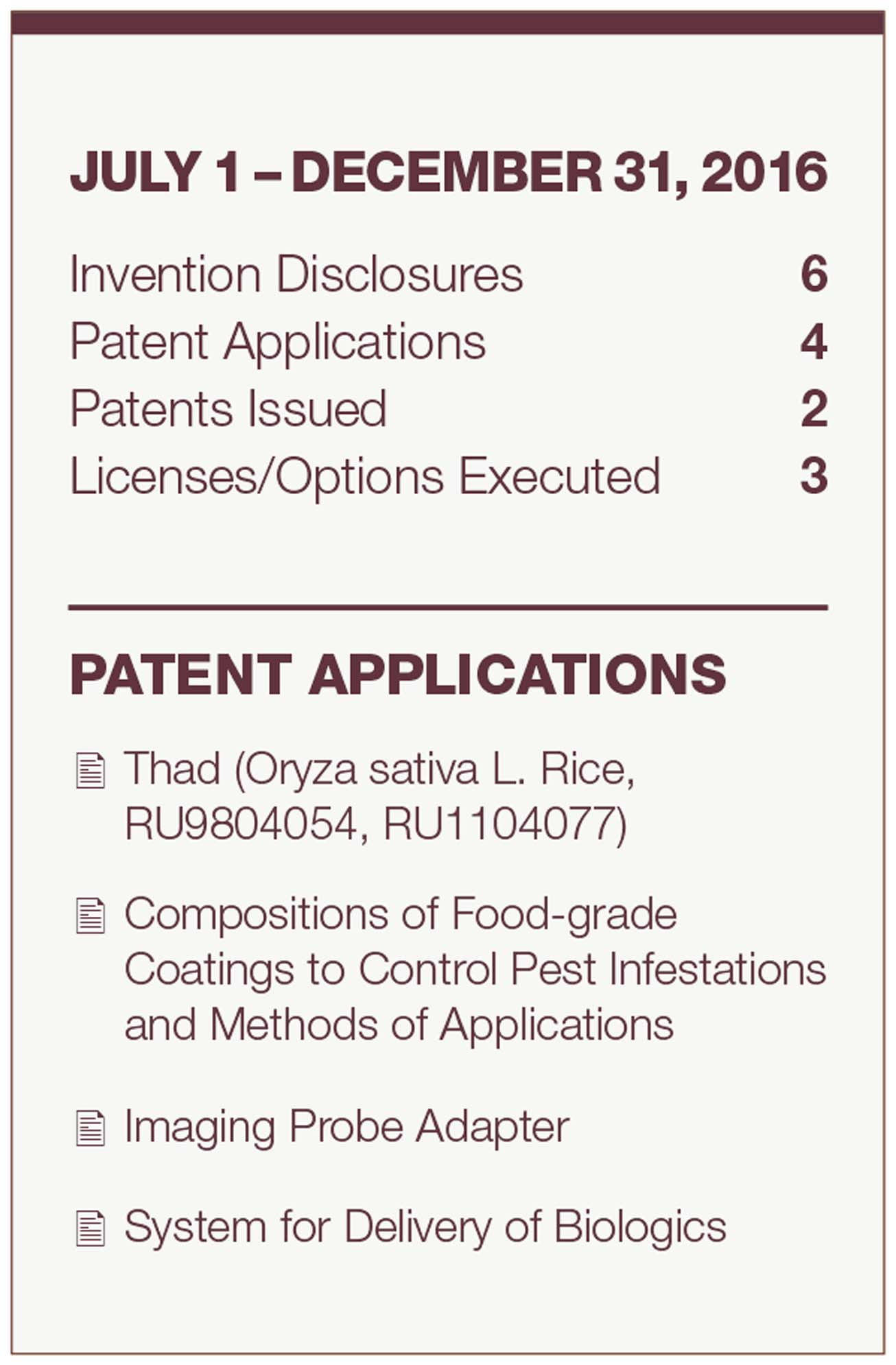The information presented on this page may be dated. It may refer to situations which have changed or people who are no longer affiliated with the university. It is archived as part of Mississippi State University's history.
Scientists in the Mississippi Agricultural and Forestry Experiment Station have recently released a new rice variety to help growers meet global demand.
"Thad," named after U.S. Senator Thad Cochran is a high-amylose rice with excellent milling qualities. Amylose is the primary component of starch found in rice and determines the market for rice.
High-amylose rice is loose and fluffy when cooked and is popular in Latin American markets and commonly parboiled in the U.S. A few years ago, Mississippi Agricultural and Forestry Experiment Station scientist Ed Redoña released Rex, a conventional rice variety with a medium level of amylose.
"In our MAFES Official Variety Trials, the current most popular high-amylose conventional variety yielded 190 to 200 bushels per acre," Redoña said. "Thad yielded between 235 and 240 bushels per acre. It's going to be a good substitute for our producers who are marketing to that parboiled, loose rice market."
The Experiment Station expects Thad to perform well, similar to the introduction of Rex in 2010.
"Rex, a conventional, medium-amylose, high-yield rice variety, has been readily adopted by our producers," Redoña said. "Within three years after its release, it captured approximately 20 percent of total rice acreage in the state."
Nearly half of all rice produced in the U.S. is exported, so Mississippi farmers need rice variety options to ensure strong foreign demand for their harvests.
The MAFES rice breeding program seeks to meet the needs of Mississippi rice growers by developing new and improved varieties that are locally adapted for Mississippi's production systems, climate, and soils. The rice breeding program is focused on developing new varieties of rice that have high yield and consumer-preferred grain quality.
Thad's Clearfield counterpart, CL163, was commercialized by HorizonAg on a limited scale in 2016. The MAFES rice breeding program in Stoneville also developed CL163. The 2017 growing season will be the first year that Thad will be commercially available for purchase as certified seed.
The MAFES rice breeding program is made possible through long-term funding from the Mississippi Rice Promotion Board.


